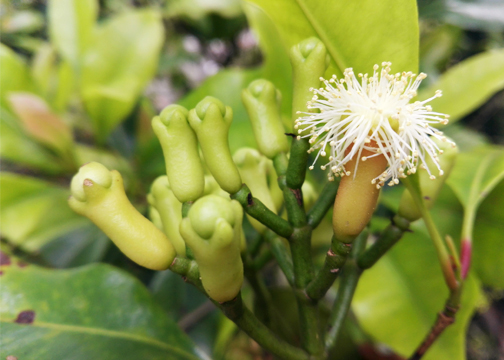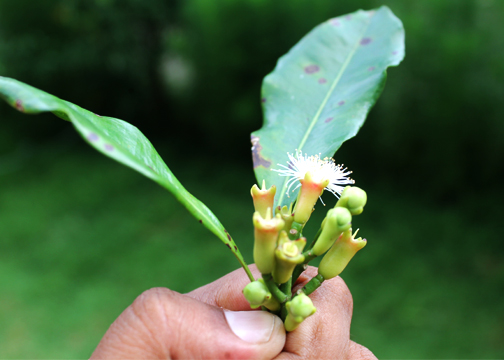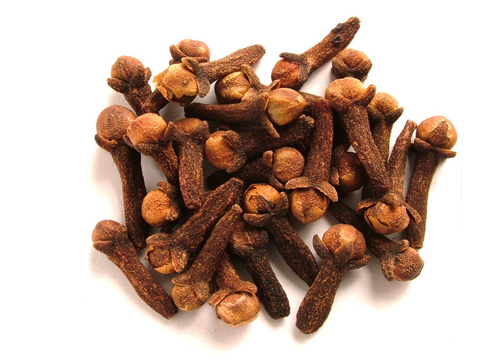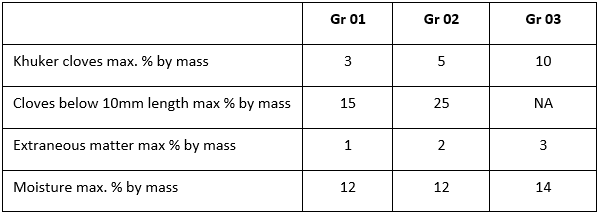


Clove
The clove tree is a medium sized symmetrically shaped tree with smooth grey bark canopy has a cone shape. Fully matured trees grow up to 15 -20m. Cloves are flower buds, unopened and dried. The bud consists of two sections, the stem and the bulbous head.
No specific varieties have been identified. However, there are trees produce bigger size clove buds which are called as “Bothal Karabu”.
Major growing areas in SL
Clove is mainly grown in Mid Country wet zone of Sri Lanka. Total extent of clove is 7618ha. and Kandy, Kegalle and Matale districts are major growing areas.
Harvesting
The right stage of harvesting clove buds is when flower petals change their color from olive green to yellow pink. Clusters of flowers are harvested together with the stalks. The harvesting season commences usually in December and extends up to the end of April depending upon the locality. The average yield of dry cloves in Sri Lanka is about 250kg/ha. Under good management conditions a yield of abut 850kg/ha can be obtained.
Processing
The flower buds should be detached from the stalks and both buds and stalks are dried in sun or artificial drier until they become dark brown and hard. Well dried good quality cloves are in golden brown color and badly dried cloves are soft and pale brown with a whitish mealy appearance which are known as “khuker” cloves. Green clove buds of the right stage give about 30% dry cloves. Well dried cloves (8-10% moisture) can be stored in gunny bags without damage by fungus and insects for 1 or 2 years.
The specifications
(given by the Sri Lanka Standard Institute).

Usage & importance
Clove is largely used as dried whole buds. Ground clove is used for curry mixtures. Clove oil either can be colorless or yellow. If exposed to sunlight it may turn into dark color. Eugenol is used in everywhere, not only in food products, but also in perfumes and cosmetics, mouthwashes and toothpastes. Eugenol has anesthetic properties and gently chewing a clove can help to temporarily relieve toothache pain and is sometimes used by dentists as a mild anesthetic. Clove oil is derived not only from the dried flower buds but also from the leaves and stems.
Specially clove is used in Indian Ayurvedic medicine, Chinese medicine, western herbalism and in the dentistry, where the essential oil is traditionally used as an anodyne (painkiller) for dental emergencies. Cloves have carminative effect to increase hydrochloric acid in the stomach and to improve peristalsis. Clove oil is used in various skin disorders like acne, pimples etc. and used in skin burns, skin irritation and sensitiveness of skin.

